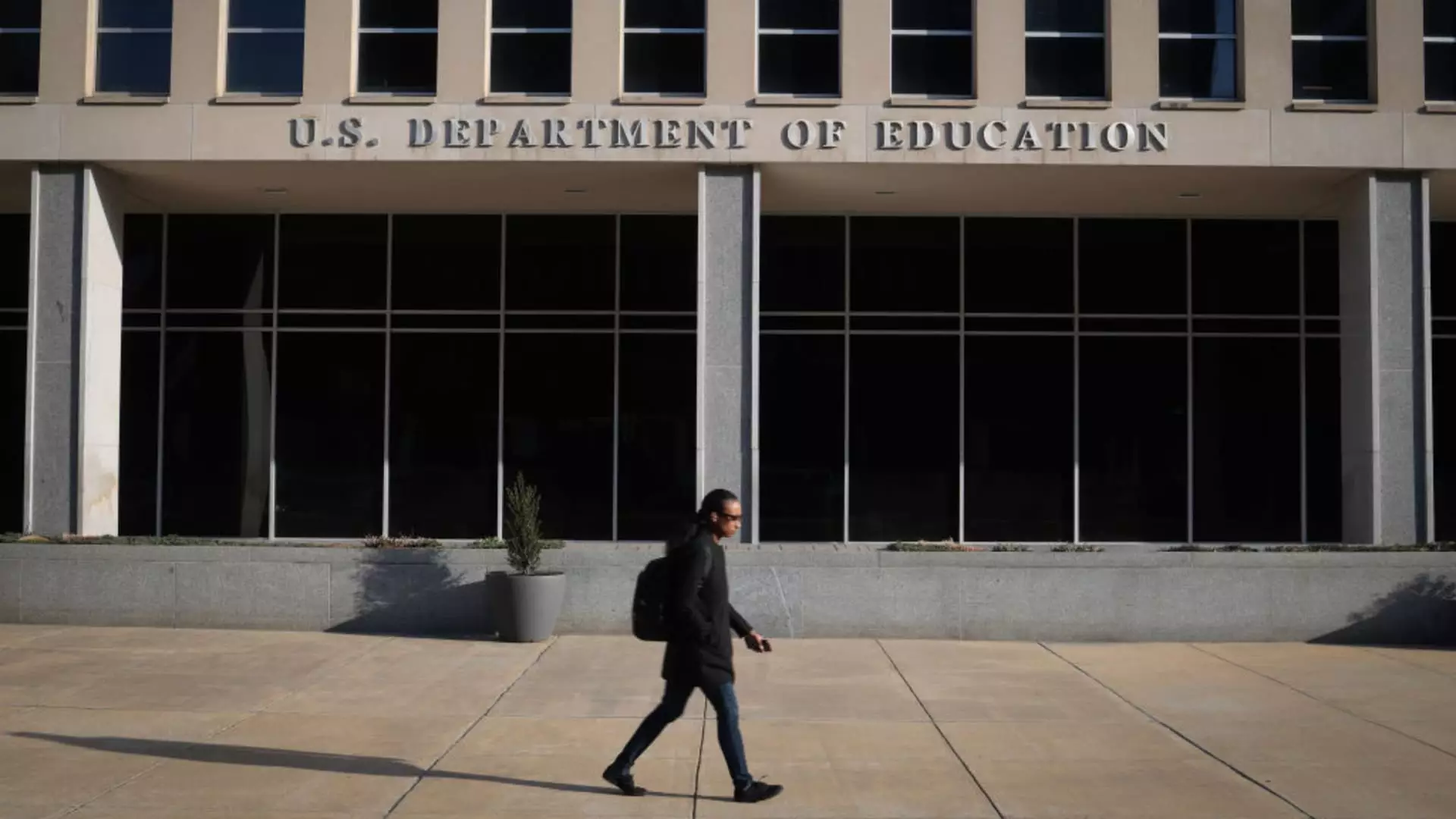The American Federation of Teachers (AFT), one of the leading labor unions in the educational sector, is filing a lawsuit against the U.S. Department of Education. This legal action stems from a contentious decision made by the Trump administration to halt applications for income-driven repayment (IDR) plans, which have historically provided numerous borrowers with manageable pathways to repay their student loans. AFT President Randi Weingarten has vehemently criticized this move, articulating that action is tantamount to sabotaging the financial well-being of countless working-class individuals who have invested in their education with the hope of improving their lives.
This lawsuit is not merely a legal dispute; it is a reflection of a larger ideological battle in the American socioeconomic landscape. The AFT believes that the government’s abrupt withdrawal of these repayment plans adds another hurdle for those already struggling beneath the crushing weight of student debt. The question arises: why would a government administration eager to project an image of support for hard-working Americans choose to disenfranchise those seeking higher education?
The Historical Context of Income-Driven Repayment Plans
Since their inception in the 1990s, IDR plans have been indispensable for making higher education financially accessible. By capping monthly payments at a percentage of discretionary income and offering forgiveness after 20 or 25 years, these plans were designed to alleviate the financial pressure on borrowers. A staggering 12 million individuals were enrolled in these programs as of September 2024, demonstrating the immense reliance on such systems for managing student debt.
In a climate marked by rising costs of living and economic instability, the importance of these repayment schemes cannot be overstated. However, the Education Department’s recent actions, purportedly based on an appeals court ruling, appear to prioritize adherence to legal interpretation over the welfare of the citizenry. This prioritization raises pertinent concerns about the role of government agencies in advocating for the people they serve.
Consequences of Financial Inaction
The ramifications of freezing IDR applications extend far beyond bureaucratic inconvenience. Students who were viable candidates for the recently introduced SAVE plan find themselves in financial limbo, unable to shift into a more forgiving repayment structure. The present turmoil places a substantial emotional and financial toll on borrowers desperately seeking relief in a precarious economic environment.
Mike Pierce, executive director of the Student Borrower Protection Center, poignantly summarizes the situation: borrowers are facing the brunt of an increasingly hostile economic landscape, all while politicians engage in a game of maneuvering that disregards the real pain experienced by millions. The callousness of such political moves can no longer be ignored; it becomes essential to hold government officials accountable for their actions—or inactions—as they critically shape policy that directly impacts the lives of their constituents.
The ongoing clash between AFT and the Education Department illustrates a broader debate over economic justice and the role of government in facilitating access to education. In a time when student loan debt continues to emerge as a defining issue in American society, it is unfathomable that decisions affecting the financial stability of countless individuals could be made so cavalierly. The struggle for equitable access to education and its subsequent financial ramifications must not be taken lightly; rather, it demands vigorous advocacy and unwavering commitment from all sectors of society.

